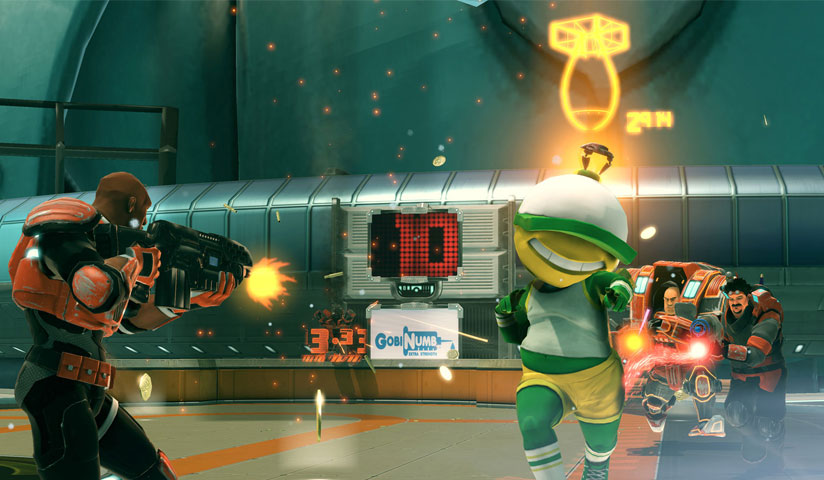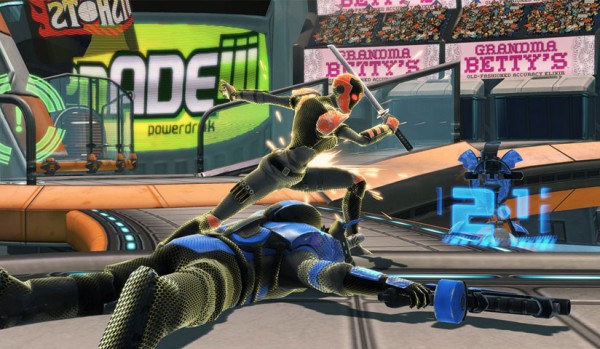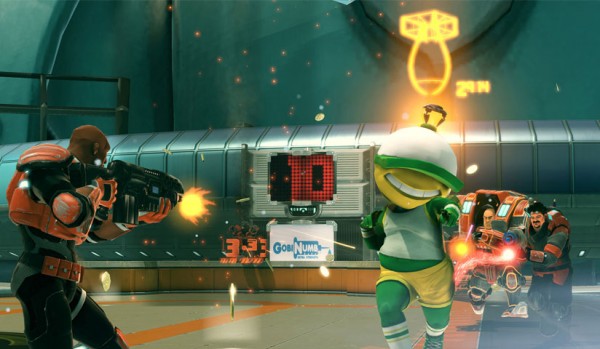Why Monday Night Combat developer Uber Entertainment ditched XBLA
Monday Night Combat was a favorite amongst the XBLA Fans team. From the summer of 2010 up until some time in 2012 we’d often take a few nights a month to get our game on. But as time went on promises made by MNC developer Uber Entertainment weren’t being fulfilled. Fans didn’t know why. Uber brought the game to the PC, where it received several updates, including a new map, Uncle Tully’s Funland (seen below). Rumors even floated around about the possibility to let players create their own maps using the Unreal Development Kit (UDK).
So why the move? As we reported in June 2011, the Xbox 360 version had more players than the PC version, so why wouldn’t it make sense to continue supporting it? Things got even more confusing three months later when Uber announced that it was dropping support for the game all together in favor of its sequel, Super Monday Night Combat, which was to be a free-to-play PC exclusive. Fans were split on the matter, many supported the struggling developer, while others were outraged.
It’s a tale we hear all too often: developers leave their stable jobs to form a new studio. They ride on mere pennies to get a new game up and running. Hoping to enthuse fans they make big promises. The game releases, and as the developers start to make good on their promises they find the process for doing so is far too costly and time consuming. Due to lack of funds and man-hours they must relent and disappoint fans. Later the developer shares their story with a major news outlet. Uber is living the tale so many have lived before. They recently opened up to Polygon’s Alex Rubens to tell their story.
For the sake of clarity we’ll focus on any XBLA-related content. Monday Night Combat was made official in mid-2009 when Uber and Microsoft signed a publishing deal. They brought the game to PAX East in 2010, where it was so popular it had lines with upwards of a half-hour wait to play. At E3 it wowed crowds again. Our own John Laster lauded the game. But Uber was under the impression they were a shoe-in for Summer of Arcade.
“We were kind of oblivious as to how all that worked,” said Chandana Ekanayake, art director. “We thought working with Microsoft gives you a better chance. The people that decide who goes on the platform, that’s the Live platform team, and is way different than Microsoft first-party. Microsoft first-party are basically cheerleaders.”
But Microsoft wasn’t sold on putting the game into Summer of Arcade, so the dev team fished for potential new publishers. EA was so enthused that it offered to publish the game July 19 with full marketing support. Uber went back to Microsoft with an ultimatum: MNC would be part of Summer of Arcade, or they’d get EA to publish it. Microsoft agreed, and the game was released August 11, 2010, right smack-dab in the middle of the Summer of Arcade promotion.
But all was not well with the promises given to fans. Uber soon found out the hard way that pushing updates and DLC on a console leads to a costly, lengthy certification process. The first update took over a month to release, 35 days to be exact. The second update took 34. The harsh reality of certification set in on the small developer. They simply couldn’t certify at this rate; they didn’t have the funds or time of the larger studios who must go through the same process.
The decision was made to bring Monday Night Combat to the PC, where according to Ekanayake it would become a test bed for both the PC and Xbox 360 versions. “Steam as a platform is in the hands of the developers to control (and break) and update as often as we can make content. It’s also allows us to test out concepts like All-Star Rating, balance issues, get immediate feedback and put out content without worrying about memory or size issues. It’s just easy from a developers perspective and it caters to how we like to develop.” Ekanayake further tried to placate Xbox 360 players. “We haven’t forgotten about the 360”, he said.
In the end the costs proved too much to continue supporting the game. Super Monday Night Combat would take its place, which incidentally almost made it to XBLA according to The Verge. Fans were not happy. One user on their forum stated “Normally, I would say “Trust Uber, these guys take care of their players. But its been 8 months of no comment. So history is working against them.” Another user stated “The no comment thing is getting old.” A third user felt similarly: “Me and many other Xbox players felt very cheated and lied to with no mention of updates and the announcement of Super MNC.” A fourth commenter was much more direct. He stated “So we can take this as our official ‘you’re sh*t out of luck” notification?’”
Since that time Uber has effectively sworn off consoles. Some may be eager to point the finger at Microsoft’s certification process, but remember that all games (except Xbox LIVE Indie Games) must pass through the same trials. The standards in the cert process ensure the game not only runs well, but is free from exploit. Console manufacturers must protect their products from intrusion and malicious intent, whereas PC owners are individually responsible. To simplify the process just because a developer is indie would be unfair, and invite potential issues.
Following the article, Uber’s Bob Berry joined Ekanayake and Braid creator Jonathan Blow in trashing their publisher on Twitter:
@Jonathan_Blow @Ekanaut Simple, because they believe there will always be new teams to exploit. As long as devs keep signing, it wont change
— Bob Berry (@ooo27) March 20, 2013
@Jonathan_Blow That was our conclusion as well but our MS rep should have at least read it over before throwing it over. It was insulting.
— Chandana Ekanayake (@Ekanaut) March 20, 2013
This brings up another issue. Far too many indie developers sell their sob story after their games have seen success. To a large extent we feel their pain. It’s difficult to be a small studio and get your game up and running on a major console. But it’s just a fact of life. And effectively pointing their fingers at ‘the man’ doesn’t change that. In fact you’ll find that in almost any other industry such trash talking would never be accepted so readily. It is, in this editor’s opinion, utterly unprofessional, and it only serves to severe future relationships with publishers. Major studios, for the most part, get this. With the exception of a few studios such as Free Radical and Silicon Knights most don’t feel the need to turn private matters into daytime dramas.
But at the same time we mourn the loss of a great developer on XBLA. Many like Uber have moved on, concerned about the costly need to publish on a console versus a PC. Some were simply ignorant to the process of publishing on a console, and some are just looking for greater freedom. Many others, however, are finding Xbox LIVE Arcade to be a place where their games can thrive. It’s just a shame things didn’t work out better for Uber Entertainment and Monday Night Combat.
Sources: Uber Entertainment forums, Polygon



